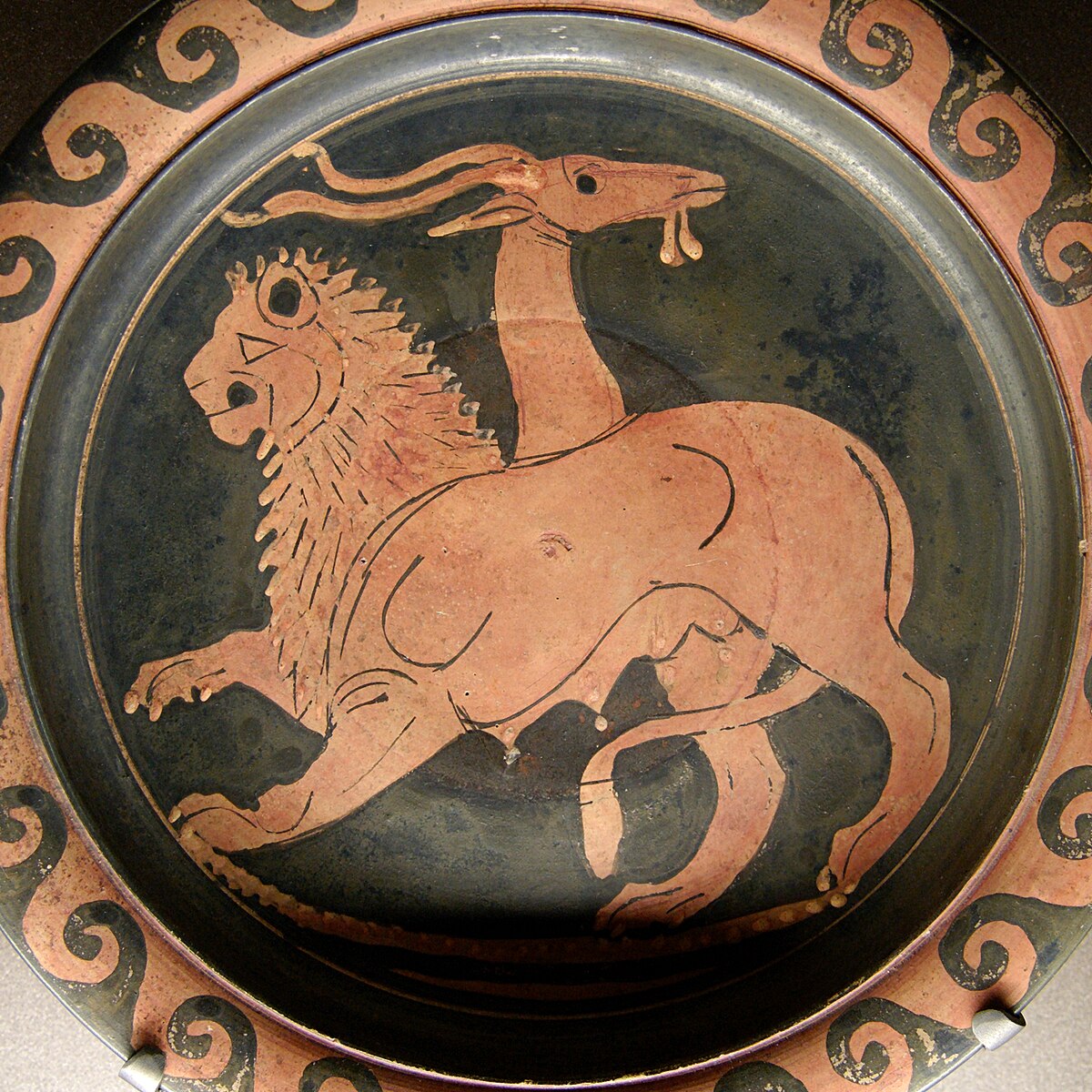Among the paradoxographers there was a trend of referring to fantastic material and then rationalizing it in some way. Palaephatus is one of the best examples of this, but there was also Heraclitus the Paradoxographer, not to be confused with the pre-socratic Philosopher, the Homeric commentator, or even the Byzantine emperor of the same name.
From Heraclitus the Paradoxographer, 7 Concerning Pasiphae
“People claim that [Pasiphae] lusted after the Bull, not, as many believe, for an animal in a herd—for it would be ridiculous for a queen to desire such uncommon intercourse—instead she lusted for a certain local man whose name was Tauro [the bull]. She used as an accomplice for her desire Daidalos and she was impregnated. Then she gave birth to a son whom many used to call “Minos” but they would compare him to Tauro because of his similarity to him. So, he was nicknamed Mino-tauros from the combination.”
Περὶ Πασιφάης.
Ταύτην φασὶν ἐρασθῆναι Ταύρου, οὐχ, ὡς πολλοὶ νομίζουσι, τοῦ κατὰ τὴν ἀγέλην ζῴου (γελοῖον γὰρ ἀκοινωνήτου συνουσίας ὠρέχθαι τὴν βασίλισσαν), ἑνὸς δέ τινος τῶν ἐντοπίων, ᾧ Ταῦρος ἦν ὄνομα. συνεργῷ δὲ χρησαμένη πρὸς τὴν ἐπιθυμίαν Δαιδάλῳ καὶ γεγονυῖα ἔγγυος, ἐγέννησε καθ’ ὁμοιότητα τοῦ Ταύρου<υἱόν>, ὃν οἱ πολλοὶ Μίνω μὲν ἐκάλουν, Ταύρῳ δὲ εἴκαζον· κατὰ δὲ σύνθεσιν Μινώταυρος ἐκλήθη.
From Heraclitus the Paradoxographer 15 On the Chimaera
“Homer provides an image of the Khimaira when he says that in the front she was a lion, in the rear a serpent and in the middle a goat. This sort of thing could be the truth. A woman who ruled over those places had two brothers who helped her named Leo and Drako. Because she was an oath-breaker and guest-killer, she was killed by Bellerophon.”
Περὶ Χιμαίρας.
Ταύτην ῞Ομηρος εἰκονογραφῶν φησι πρόσθε λέων, ὄπιθεν δὲ δράκων, μέσση δὲ χίμαιρα. γένοιτο δ’ ἂν τὸ ἀληθὲς τοιοῦτον. γυνὴ τῶν τόπων κρατοῦσα δύο πρὸς ὑπηρεσίαν ἀδελφοὺς εἶχεν ὀνόματι Λέοντα καὶ Δράκοντα. παράσπονδος δὲ οὖσα καὶ ξενοκτόνος ἀνῃρέθη ὑπὸ Βελλεροφόντου.
From Heraclitus the Paradoxographer 16 Concerning Circe
“Myth has handed down the idea that Kirkê transformed people with a drink. But she was a prostitute and by charming guests at first with every kind of delight she would mold them towards good will, and once they were in a state of passion, she would keep them there by means of their desires as long as they were carried away with pleasures. Odysseus bested even her.”
Περὶ Κίρκης.
Ταύτην ὁ μῦθος παρ<αδ>έδωκε ποτῷ μεταμορφοῦσαν ἀνθρώπους. ἦν δὲ ἑταίρα, καὶ κατακηλοῦσα τοὺς ξένους τὸ πρῶτον ἀρεσκείᾳ παντοδαπῇ ἐπεσπᾶτο πρὸς εὔνοιαν, γενομένους δὲ ἐν προσπαθείᾳ κατεῖχε ταῖς ἐπιθυμίαις ἀλογίστως φερομένους πρὸς τὰς ἡδονάς. ἥττησε δὲ καὶ ταύτην ᾿Οδυσσεύς.


I’m very much enjoying Sententiae Antiquae, but I do have a question: is it possible that the emperor mentioned in the lead is not “Heraclitus” but “Heraclius” (r. 610–641)?
yes!